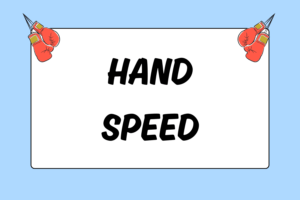Successful boxers have to sacrifice. For example, leisure time takes a major hit due to countless hours of skill training and roadwork. Other aspects of your life must be sacrificed, though, as well. One of these additional sacrifices is the freedom to eat whatever you want whenever you want. A healthy, highly-regulated diet increases energy and speeds up recovery time.
A healthy diet also helps you reach your desired weight for competition. This guide discusses weight goals and highlights ways to cut weight without jeopardizing all of your hard work in the gym.
Weight Considerations
Nearly all professional and amateur boxers try to minimize their bodyweight in order to participate in lower weight divisions. By minimizing their weight, boxers significantly decrease the possibility that they’ll fight a competitor who’s naturally bigger. Accordingly, they increase the likelihood that they’ll face an opponent who’s naturally smaller.
Caution needs to be taken, though. The worst mistake a boxer can make is resorting to measures that drastically reduces his strength or leaves him feeling sluggish in the ring. Cutting weight is truly a science, so boxers need to understand and be in tune with their bodies.
General Tips
Here are some tips that you should consider as you try to drop some weight:
Realistic Time Frame
Crash diets and over-training in the weeks leading up to a bout will leave you feeling weak when you step into the ring. Losing weight involves a disciplined diet and solid conditioning routine. It could take several months for you to reach your target weight, so always keep your goals in mind and remain patient. Skill training, roadwork, and a healthy diet will produce results when practiced consistently over a relatively long period.
Just Say No
It may sound obvious, but alcohol consumption detracts from athletic performance and needs to be eliminated from your diet as you prepare for a bout. Alcohol has negative effects on factors such as sleep, weight control, and muscle recovery.
Diet & Nutrition
Be sure to eat a well-balanced diet that includes carbohydrates, fats, and proteins. Carb-free and no-fat diets are counterproductive — you need to properly fuel your body for intense training. Eat small meals five to six times per day. Frequent, smaller-sized meals will provide you with consistent energy while increasing your metabolism.
Always aim to eat natural, unprocessed foods. Organic foods are high in vitamins, minerals, and fiber. Lastly, avoid eating late at night. Your body ends up storing what it doesn’t use during the day, leading to unnecessary weight gain.
Water
Eliminating all non-water beverages is the easiest way to drop excess weight. Sodas and juices are packed with tons of simple carbs that your body struggles to break down.
Water, on the other hand, plays an important role in many bodily functions. By increasing your water consumption, you help your body flush out toxins, increase its metabolism, and lubricate joints and muscles.
Chew on This
Boxers often scour for ways to decrease their appetites, and sugar-free gum usually provides the solution. Chewing sugar-free gum can suppress food cravings. To boot, studies have also shown that chewing gum increases focus and decreases stress.
The Final Few Pounds
The amount of weight that you can feasibly drop in the days prior to a fight depends heavily on two factors: Your individual body, and the amount of time in between your weigh-in and bout. If your weigh-in and bout are on the same day, then slight dehydration prior to weigh-in may affect you in the ring. Many boxers who fight the day following weigh-in, though, shed a few extra pounds by reducing the amount of water they consume in the 12 to 24 hours leading up to the weigh-in. This strategy is effective because water accounts for more than half of your bodyweight.
Additionally, you can hit the sauna, run, or jump rope to break a sweat and drop some extra liquid pounds in the hours prior to weigh-in. Be careful when choosing this route, though, as you don’t want to jeopardize all of your hard work with irresponsible moves in the final days leading up to a fight. In any case, be sure to fully hydrate and refuel immediately after weigh-in.
Mental Edge
You must adopt the proper mindset in order to be successful. It takes a determined and self-disciplined individual to commit to a diet and daily training. Identify tangible goals and be cognizant of the steps you’re taking to accomplish these goals.
Know Your Body
Again, it takes time and experience to master the science of cutting weight. Your individual body plays a huge role in the equation, and nobody knows your body better than you do. With that said, recognize that cutting weight is a learning process. If you make smart decisions outside of the ring, you’ll likely make smart decisions during a bout.






